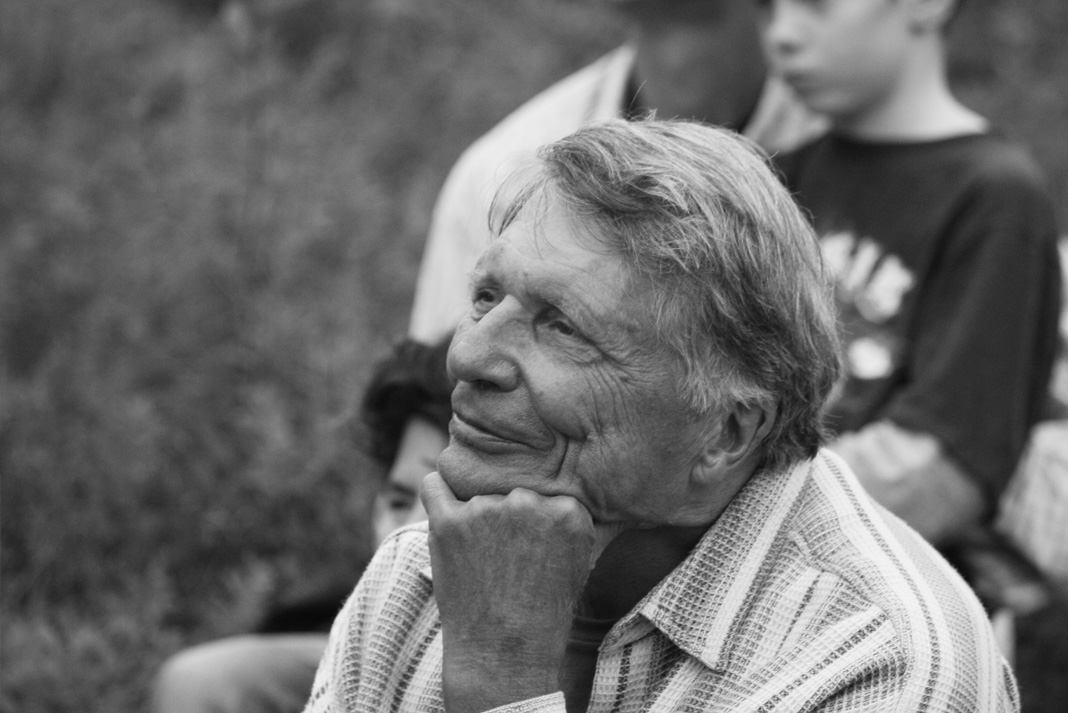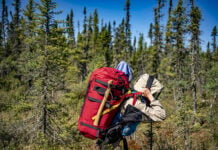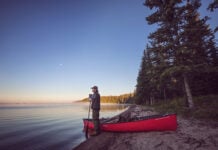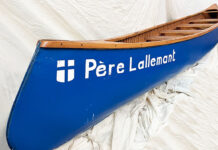This is my second goodbye to my friend and mentor Bruce Hodgins, but sadly, this one is for keeps. The first was said in June of 1988 when Bruce was struggling to breathe. Word in the paddling community was his condition was serious, but there was a medical procedure to solve it. Like many lifesaving operations, it was not without dire risk.
So, when Bruce turned up at the Great Hall at Peterborough’s Trent University to a send-off dinner for the members of the Operation Raleigh Arctic Expedition, he was drawn, wan and decidedly out of breath. I remember saying so long with a hug and unable to stem the flow of tears, thinking this might be the last time I’d see him.
That was 31 years ago, and Bruce, who was a scant 57 years old at the time, was in his professional prime. He had established himself as a historian and author, and a professor at Trent University. He had distinguished himself as a leader in the paddling community as director of the canoe tripping camp Wanapitei, based in Temagami, Ontario. It was in this capacity he turned up at the Great Hall to wish the Operation Raleigh Canadian Arctic Expedition well.
This project was part of a four-year, around-the-world journey for science and service, roughly following Sir Walter Raleigh’s 1588 global circumnavigation. Its four-month Canadian phase included a canoe trip down the Kazan River, through what is now Nunavut. The aim was to do several scientific projects, including the first systematic archaeological survey of this northern river valley.
We had eight leaders from across Canada and 24 young participants from 16 different countries. All we had to do was teach them to paddle, negotiate whitewater, wilderness camp, get along with total strangers, survive in Arctic conditions and learn to gather benthic cores and conduct archaeological survey research too. Most of our participants had never done any of these things.
Bruce was one of the only people who didn’t wince when we told him what we were attempting. He was sure this was possible, worth doing and going to be a hell of an adventure. It would stretch everyone in ways we couldn’t imagine—particularly the expedition staff. Bruce embraced this kind of challenge. He knew wicked hard canoe trips build wicked compassionate hearts.
As an activist, master paddler and scholar, Bruce was not neutral about anything. Sharing meeting tables with others as we built policies and teaching progressions for the Ontario Recreational Canoeing Association and Canoe Ontario back in the 1970s, I used to wait until he’d find a seat and then do my level best to distance myself. I was afraid of being “Bruced” at point-blank range.
Yes, that was the verb to describe what happened when Bruce got wound up and delivered a verbal tirade that could peel paint, cower dogs, and make grown people cry. Make no mistake—Bruce usually had a point. And he was often right. He couldn’t help his uncommon passion. I learned to love him for not leaving anyone standing around, wondering where he stood.
Bruce’s genius was to bring people together in common cause. Whether a square dance, a seminar, or beloved book projects, such as Canoeing North Into the Unknown and Nastawgan: The Canadian North by Canoe and Snowshoe. The zenith of Bruce’s vision for what could be when like-minded souls collaborate is the Canadian Canoe Museum. This remarkable collection of canoes would not have come to Peterborough from woods in Haliburton Country, nor would it have found the nourishment it needed to survive and grow without Bruce as part of the original team.
Bruce and the Canadian Canoe Museum founder Kirk Wipper knew each other through the Ontario Camping Association. As fellow camp directors, they had a history enriched and enlivened by their mutual love of canoes, history and wilderness. They shared the belief that to understand the geographic and cultural amalgam of Canada, one first needed to understand it is a nation of canoes. Bruce knew this in his soul.
Bruce passed away at the end of August, at 88 years old. Happily, he spent his last weeks at his beloved Camp Wanapitei. His legacy lives on in those who knew him, as well as Trent University and lore of Camp Wanpitei and, of course, in the ongoing evolution of the Canadian Canoe Museum.
So long, my friend. A parting cup to you, until we meet again.
Bruce Hodgins was a believer that wicked hard canoe trips build wicked compassionate hearts. | Featured photo: Courtesy Hodgins Family









